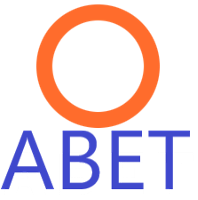Objectives and Outcomes for Chemical Engineering

Program Educational Objectives
The overall educational objective of our program is to develop effective practitioners in chemical engineering and associated fields. We expect that our graduates will contribute to the advancement of their chosen field, while remaining mindful of the ethical and social implications of their work. They will confidently apply knowledge in the basic sciences, mathematics, engineering analysis, and design to address problems in a broad range of disciplines. In keeping with the continuously evolving nature of the field of chemical engineering, we expect that our alumni will effectively communicate, engage in lifelong learning, and that many of them, inspired by research experiences as undergraduates, will continue their education in advanced degree programs.
Our educational mission is to provide students with the initial foundation knowledge and skills they will need to become, and remain, leaders in their professional careers. Specific program objectives are:
- Be able to understand and apply math, science, computational, and engineering concepts that constitute the modern intellectual basis for the chemical engineering profession;
- Be able to communicate effectively and work in multidisciplinary teams, taking on leadership roles in industry, academia, or government;
- Be aware of environmental, safety, and societal issues facing science and technology and adhere to high ethical standards;
- Engage actively in lifelong learning and professional development activities;
- Achieve one of the following within six years of graduation:
- Obtain an advanced degree in chemical engineering or in a related field including law, medicine or business
- Advance professionally to leadership positions of greater technical or ethical responsibility
- Engage in a problem of societal or global importance
We prepare students to make successful contributions in careers in a wide variety of professional arenas including industry, academia, government, medicine and law.
We will take advantage of the unique resources offered by the University of Rochester to promote the department's mission, including the development of good working relationships with faculty from across the University to facilitate the advising, training and general enrichment of our students' educational experience while at the University.
Student Outcomes
Outcome 1: An ability to identify, formulate, and solve complex engineering problems by applying principles of engineering, science, and mathematics
Outcome 2: An ability to apply engineering design to produce solutions that meet specified needs with consideration of public health, safety, and welfare, as well as global, cultural, social, environmental, and economic factors
Outcome 3: an ability to communicate effectively with a range of audiences
Outcome 4: an ability to recognize ethical and professional responsibilities in engineering situations and make informed judgments, which must consider the impact of engineering solutions in global, economic, environmental, and societal contexts
Outcome 5: an ability to function effectively on a team whose members together provide leadership, create a collaborative and inclusive environment, establish goals, plan tasks, and meet objectives
Outcome 6: An ability to develop and conduct appropriate experimentation, analyze and interpret data, and use engineering judgment to draw conclusions
Outcome 7: an ability to acquire and apply new knowledge as needed, using appropriate learning strategies

